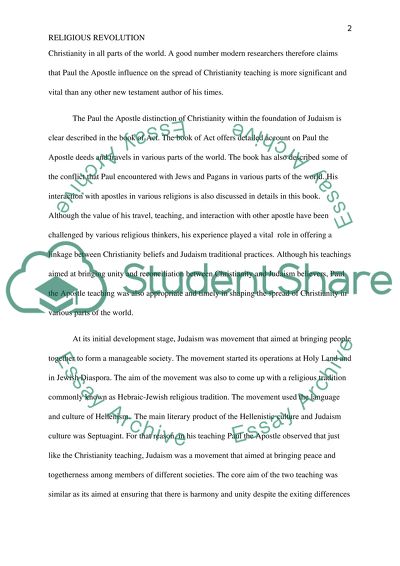Cite this document
(“Religious Revolution: How Paul the Apostle gave distinction to Research Paper”, n.d.)
Religious Revolution: How Paul the Apostle gave distinction to Research Paper. Retrieved from https://studentshare.org/religion-and-theology/1497910-religious-revolution-how-paul-the-apostle-gave
Religious Revolution: How Paul the Apostle gave distinction to Research Paper. Retrieved from https://studentshare.org/religion-and-theology/1497910-religious-revolution-how-paul-the-apostle-gave
(Religious Revolution: How Paul the Apostle Gave Distinction to Research Paper)
Religious Revolution: How Paul the Apostle Gave Distinction to Research Paper. https://studentshare.org/religion-and-theology/1497910-religious-revolution-how-paul-the-apostle-gave.
Religious Revolution: How Paul the Apostle Gave Distinction to Research Paper. https://studentshare.org/religion-and-theology/1497910-religious-revolution-how-paul-the-apostle-gave.
“Religious Revolution: How Paul the Apostle Gave Distinction to Research Paper”, n.d. https://studentshare.org/religion-and-theology/1497910-religious-revolution-how-paul-the-apostle-gave.


